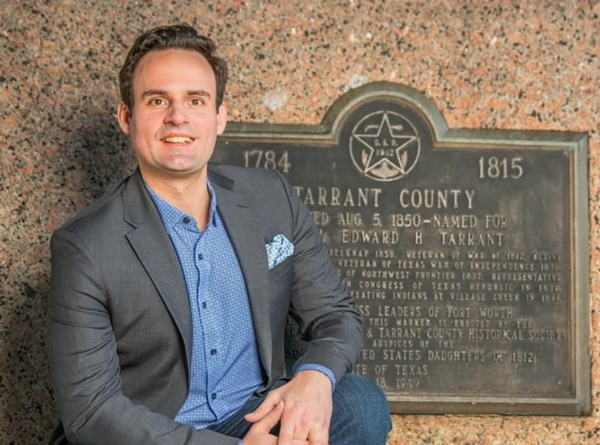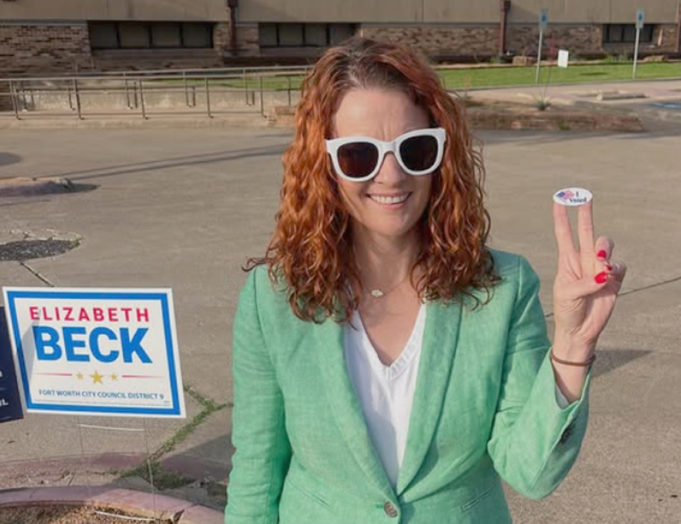Protests, like the one that took place April 19 downtown which garnered national attention (“Protest Draws Hundreds,” April 23), are well and good, but the biggest way to fight rising authoritarianism is to participate in free and fair elections (while we still have them). If you planned to sit this one out, you’ve forgotten that in your daily lives, you will feel the effects of what your local and state officials do more than you will feel what the federal government does, especially now that President Musk and his orange puppet have begun systematically dismantling every federal government program that might have protected you from out-of-control local officials.
The local election on Saturday, May 3, for which early voting has already ended, is made up of races for ostensibly nonpartisan seats, but we all know that is meaningless in current times. You need only look at candidates’ own words online to know which way they lean. To maintain this paper’s hard-earned reputation as a liberal rag not worth lining your bird’s cage, the following rundown will attempt to steer you in the direction of candidates who aren’t actively supporting the fascist takeover of our city, state, and country as a whole. Go for the boldface type.
Mayor
For the mayoral race, Mayor Mattie Parker is facing seven challengers in her bid for reelection for a third term, for which she is almost certainly destined.
The mayoral candidates, in the order they appear on the ballot, are: Mattie Parker (incumbent), Josh Lucas, Alyson Kennedy, Lawrence E. Walker II, Millenium Anton C. Woods Jr., Chris Wood, Jeremy F. Labelle, and Donnell Ballard. You can find their answers to policy questions on Vote411.org.
Parker has made improving Fort Worth ISD schools the cornerstone of her most recent term, which has helped boost her popularity among many voters, but in going after the scapegoat superintendent (“Reset,” Oct 9, 2024) while offering no opinion on the recently passed “school voucher” legislation that will further cripple public school funding, she showed that she prefers catering to the special interests of deep-pocketed donors to caring about students’ education.
Running on a shoestring budget and facing a Sisyphean effort to unseat Parker, challenger Josh Lucas has been visible at recent protests and other demonstrations against the Trump Administration. Lucas said on his campaign website that he is running for mayor because “as right-wing extremism rises at the local and national level and new laws target the most vulnerable, I’m ready to lead with compassion and protect what makes Fort Worth strong — our people. It’s time to build a city where ‘y’all’ truly means ‘all.’ ”

Courtesy Josh Lucas/Instagram
City Council
Every single Fort Worth city council seat is up for grabs, which means this election applies to every single voter. No matter what happens, the council is guaranteed to welcome at least two new councilmembers because incumbent councilmembers Gyna Bivens of District 5 and Jared Williams of District 6 aren’t seeking reelection. Of the other nine sitting councilmembers, all but District 10’s Alan Blaylock and District 7’s Macy Hill are facing at least one opponent. There are 35 candidates running in total. Find which district you live in at FortWorthTexas.gov/government/districts, then do your research with tools like Vote411.org, where you can create a sample ballot, review candidate responses to policy questions, and make selections, which you can then print and take with you to the ballot box. (Electronics are not allowed.) For what it’s worth, the local Sierra Club recently endorsed the following candidates: Jason Ballman (challenger, District 3), Deborah Peoples (challenger, District 5), Daryl Davis (open seat, District 6), Chris Nettles (incumbent, District 8), and Elizabeth Beck (incumbent, District 9).
Tarrant Regional Water District Board of Directors
Although you can select three out of four candidates for this special election, supporters of the environment and water conservation recommend voting for only Andrew Brinker, which will increase his chances of earning a seat. The other three candidates — Skylar O’Neal, Johnathan Killebrew, and Leah King — have joined forces and are advertising together as Coalition for the Fort, and campaign finance reports available on TRWD’s website show that one of their largest contributors is the Fort Worth Police Officer’s Association. If the FWPOA’s goals and opinions don’t align with yours, you probably shouldn’t vote for candidates they support.
Brinker, though, has been running a grassroots campaign focusing on using his Master of Science in biology from TCU to bring a scientific perspective to the board while prioritizing transparency and open communication between TWRD and the community.
Brinker has already worked with TRWD since 2017 on research and educational projects, engaging students in hands-on fieldwork along the Trinity River. In one of his Vote411.org Q&A responses, he said, “My daily presence at the river allows me to monitor its conditions, collect data, and connect with the community. I am committed to using science-driven, sustainable solutions to guide TRWD’s decisions.” Find out more at TRWD.com/boardelection.

Courtesy Andrew Brinker
Fort Worth School Board
School board elections have never felt more consequential. Thankfully, Fort Worth does not use the at-large voting system employed by other North Texas school districts like Keller’s, which allows right-wing extremist groups to apply their influence to help elect board members who then move to ban curricula and educational materials that teach children about diversity and history. Here in Fort Worth, each seat is a single-member district, meaning members represent a specific geographic area that votes for them.
Five seats on the nine-member Fort Worth school board are slated for the ballot, and all of the incumbents are running for reelection. The board finally seems to have some positive momentum following the ousting of former superintendent Dr. Angélica Ramsey, with all board members showing support for new superintendent Karen Molinar. As Fort Worth ISD gears up for intense community discussions on proposed school closures and perpetual funding shortfalls, it might be best to maintain continuity. Below is a quick rundown of the seats for which incumbents are facing an opponent.
District 1: Camille Rodriguez, first elected in 2022 to represent parts of North Fort Worth, is running for reelection against former Fort Worth ISD teacher of the year Amanda Inay. Notably, Rodriguez was the only trustee to vote against accepting Ramsey’s resignation, citing the need for consistency and stability in the district. She’s running on a similar platform now, while Inay is focused on literacy and teacher support.
District 4: Wallace Bridges is the current trustee representing southeast Fort Worth. Running against him is 27-year-old charter-school teacher Enoc Baeza.
District 7: Representing much of southwest Fort Worth and parts of Benbrook, retired educator Michael Ryan, the incumbent, currently serves as one of the board’s vice presidents. Running against him is longtime teacher Terry Roach.
District 9: Incumbent Roxanne Martinez currently serves as the school board president and represents an area stretching from North Side through downtown to parts of the Near Southside. Her opponent, Robyne Kelly, is a substitute teacher and former flight attendant.
This column reflects the opinions of the editorial board and not the Fort Worth Weekly. To submit a column, please email Editor Anthony Mariani at Anthony@FWWeekly.com. He will gently edit it for clarity and concision.












